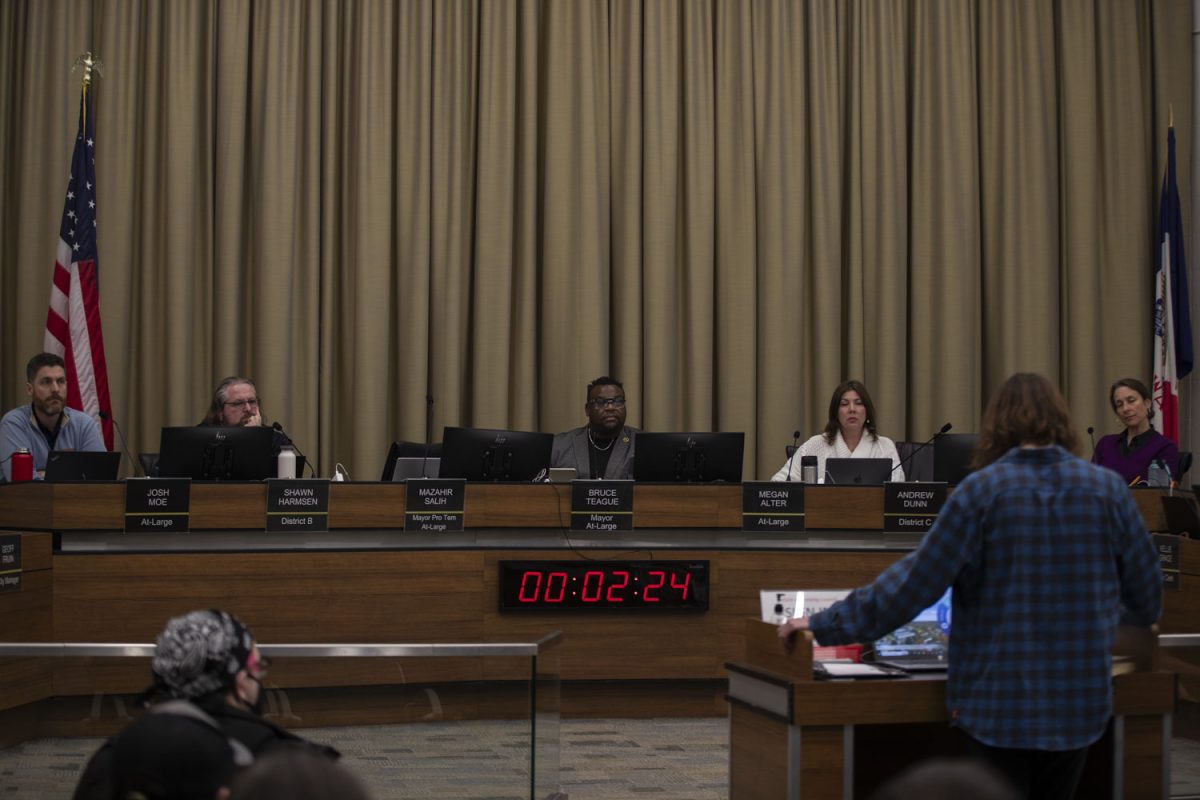On May 7, 2024, the City Council approved a resolution that would halt the approval of new retail tobacco licenses. This moratorium was set until Jan. 1, 2025, with the intent that the council could research and discuss means of regulation for the rapidly growing tobacco industry. Councilors discussed an update on the public health threat of the 63 tobacco retailers currently in Iowa City during their work session on July 16, 2024.
The council is looking to not only regulate tobacco but also tobacco products, which include vapes and nicotine-related products. The council is focused on the public health aspect when thinking of these regulations.
“That’s really what this [moratorium] is about, trying to mitigate the public health harms that come with tobacco use.” City Attorney Eric Goers said.
There are two main types of policies which the council could decide between.
A non-zoning regulation would include setting a limit, either based on population or just a set number, on the number of tobacco retailers allowed in city limits.
The zoning regulations are based on the location of the tobacco shops. These regulations could include minimum separation distances between retailers and what the council characterized as “sensitive populations.” The populations in question include underage individuals, so locations such as parks and schools would be part of the distance regulation.
Goers also discussed that because of the 2020 law that went into effect, moving the legal age from 18 to 21 for tobacco consumption, the zoning regulations could also include the University of Iowa campus.
“The more young people see it in the community, the more likely they are to start.” Susan Vileta, a health educator from Johnson County Public Health, explained during the discussion.
The council came to a consensus that there should be a hybrid solution of both types of regulations.
Council members brought up many questions in their discussion of the possible regulations, one being if a retailer should be regulated the same as a vape shop when it has less than 50 percent of its sales coming from tobacco.
“There is no real reason we should be preventing a grocery store like HyVee from renewing their [tobacco] permit on a location where they have been forever,” councilor Andrew Dunn said.
But Vileta provided insight into how tobacco comes into communities.
“That [grocery stores and convenience stores] is where tobacco comes into the community.” Vileta said.



